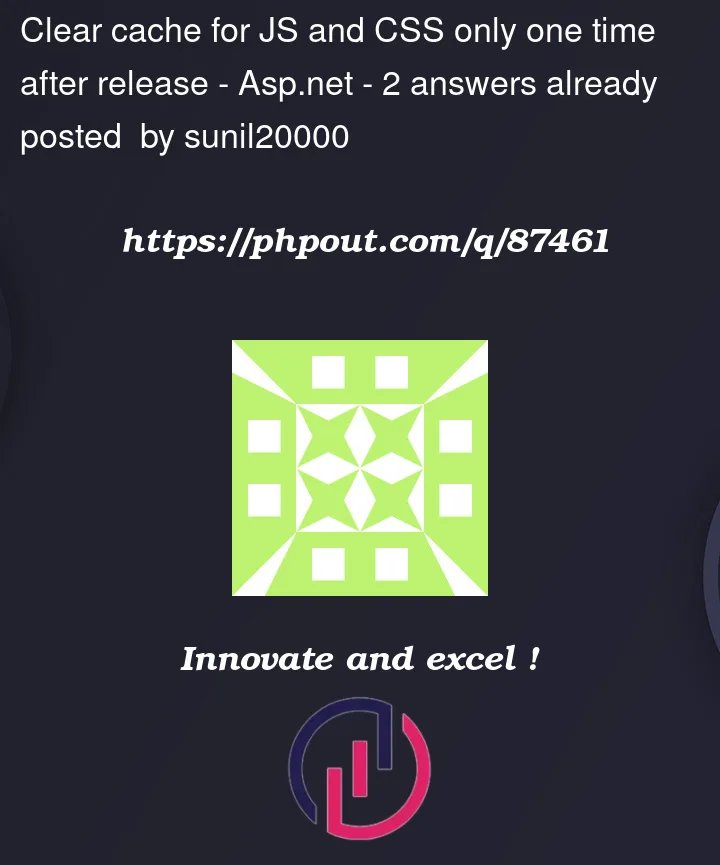I am working on .Net(C#) application. It’s a quite old application and has classic Asp pages, Web Forms and MVC pages. And using single page application concept to load all these pages. All of them have different-different CSS and JS based on business logic they have.
Now the problem is, every time after our release we face same issue that is CSS and JS caching. I know there are couple of ways to deal with this issue, the most common is adding a version and change this version with every release. But the problem is we have thousands of such links so updating all of then I don’t find it a solution that we should opt.
Another approach what we thought of is, we can have a module that intercept all the resource requests and we update the link for each CSS and JS file and add some version (what I mentioned in above paragraph). But the problem I can see here is, this will make application slow because of checking and executing some string (File path) manipulation code for each resource requests.
I am sure I am not the only one who is facing this problem, so if anyone can share their experience and approach to handle this problem with minimum changes in code.




2
Answers
What might help: it isn’t necessary to include a version number in your files. It is sufficient if a versionnumber exists in your link.
You could use a (fake) querystring for that. So instead of linking to your css or js file like “style.css” you could link to “style.css?version=1.02”. This querystring part is ignored, but the browser thinks it’s a new file.
Maybe you can go through all of your links one time; make them serverside (in case of webforms) and add this versionpart serverside based on the version of your build. Then for your next releases the problem is solved..
As @tim suggested adding query string to the files will help you.
Considering the volume of changes required at your end, I think preparing a rewrite rule for .js and .css files (with pattern matching) and injecting the query string to target URL (with permanent redirection) will help you.
solution for similar query is available here
Please note that, with each build you might need to tweak the configuration as necessary.